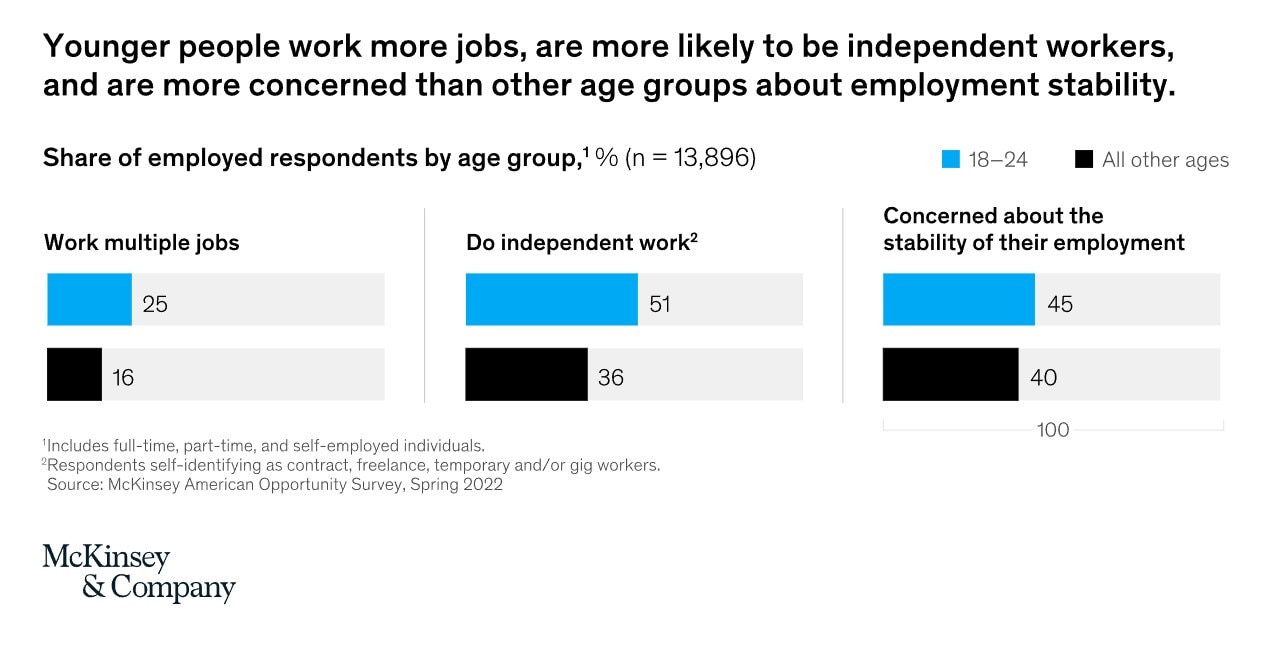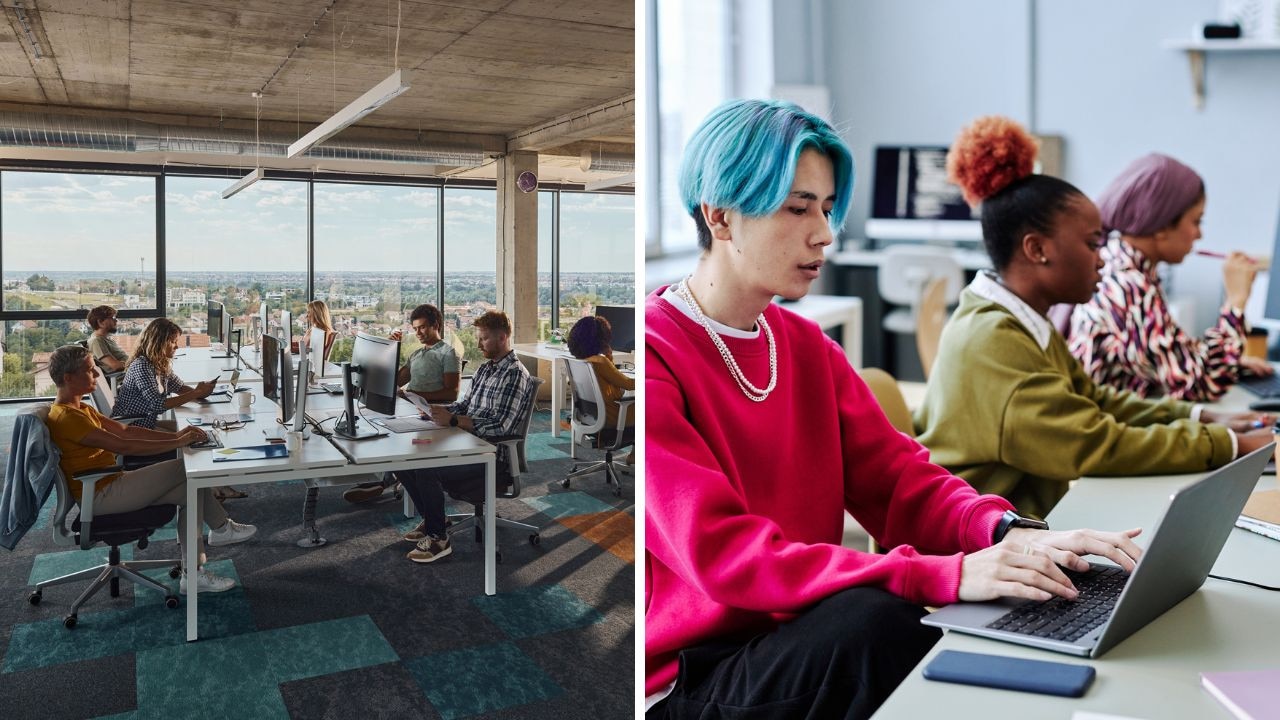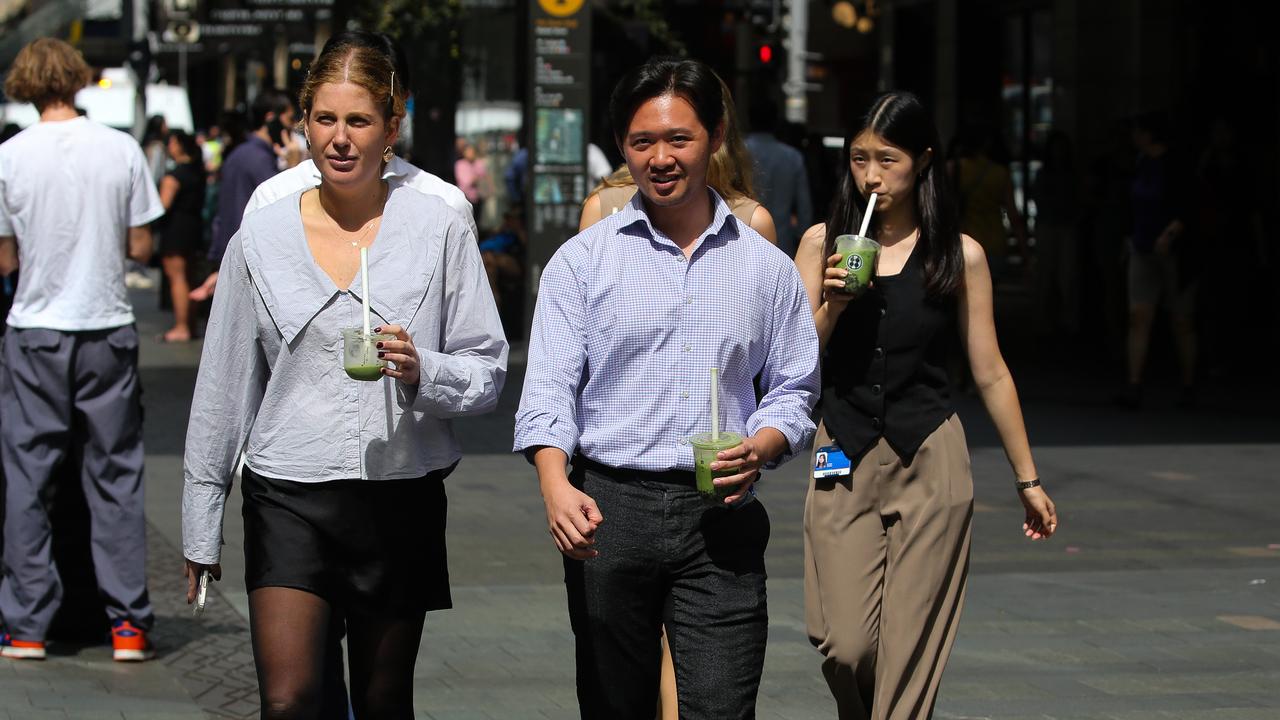‘Non-negotiable’: What Generation Z workers demand in exchange for job loyalty and productivity
Generation Z are now making “non-negotiable” demands in the office – and it will likely have a big impact on how Aussie workplaces operate.

Young workers these days are lazy, entitled and want all the glory, right now, without putting in the hard yards – if you believe stereotypes anyway.
But research shows Generation Z, who already comprise almost a third of the global workforce, are far from idle, provided their “non-negotiable” demands are met.
And despite the cost-of-living crisis, it appears they aren’t remotely as money driven as those who’ve come before them.
New data by employment platform SEEK found the cohort born between 1997 and 2012, also known as ‘Zoomers’, want to be part of workplaces they feel are supportive, flexible and inclusive.
Mattis Kervella is a manager at Australian company Fantastic Framing and could just be the perfect picture of a young employee in the modern era.
The 25-year-old places the highest level of importance on feeling engaged, being given autonomy, and enjoying a certain level of flexibility.
“At 25, I still have so many more life shifts and changes to come,” Mr Kervella said.
“As my life changes, I want my role to grow with me. That’s what makes me feel loyal and engaged in my role.”

His boss Avi Efrat, chief executive of Fantastic Framing, has recognised the shifts in workplace culture being driven by Zoomers and responded accordingly.
Mr Efrat said he continually reviews roles and changes responsibilities to fit each employee’s individual needs.
“I have regular and open check-ins with my employees to ensure the role is not only engaging enough but fits with their personal and professional goals,” he said.
That approach has delivered a high retention rate for the business – an average tenure of five years.
And the business return has grown 70 per cent year-on-year, some of which is shared among his loyal staff via bonuses of between 20 and 30 per cent on top of their salaries.
‘Non-negotiable’ workplace demands
Diversity, equity and inclusion are important values that Zoomers want to see in the workplace, according to a paper published by recruitment platform XREF.
“Generally, Gen Z job seekers will base their perception of an organisation on whether it represents a racially and ethnically diverse workplace and actively seek organisations that encourage employees to express themselves freely,” it said in a recent report.
Those are values that Millennials also share, but that older cohort see them as being optional, while Gen Z sees them as absolutely non-negotiable, the report said.
Should they find themselves in a workplace that doesn’t measure up, Zoomers are likely to look for the exit pretty quickly.

Research by global consultancy Deloitte found that Zoomers, the most diverse generation in history, are highly engaged with issues that matter to them.
“To win the hearts of Gen Z, companies and employers will need to highlight their efforts to be good global citizens – and actions speak louder than words,” its report read.
“Companies must demonstrate their commitment to a broader set of societal challenges such as sustainability, climate change, and hunger.”
Flexibility and growth are key
How and where Zoomers work is also an important consideration.
According to a report by the World Economic Forum, 73 per cent of young workers want flexible work arrangements that combine onsite, remote and hybrid models.
They’re less likely to want to work weekends or evenings, and don’t want to be bothered by phone or email outside of agreed hours.
Deloitte’s found Zoomers are used to a fast-paced and ever-changing world and expect to see something similar in their workplaces.
“To attract Gen Z, employers must be ready to adopt a speed of evolution that matches the external environment,” a report on workplace trends from Deloitte reads.
“That means developing robust training and leadership programs, with a real and tangible focus on diversity.”

Handshake, a job search site for uni students and graduates, conducted its annual Network Trends survey recently and found growth opportunities, job security and flexibility are top wants.
Learning and development benefits are essential for 87 per cent of jobseekers, while 63 per cent of respondents said the opportunity to attain advanced skills in their chosen fields would give them a sense of career success, it found.
Almost 90 per cent said flexibility is an important factor when considering applying for a job.
And the vast majority are worried about the consequences of burnout in high-pressure jobs and 78 per cent value a sustainable work-life balance.
Traditional norms shifting
Generation Z has up-ended long-standing workplace norms since they began transitioning from study to jobs in the past several years. Broadly speaking, research shows young workers want to be compensated for going above and beyond.
While a base salary is an important consideration for jobseekers, the SEEK research shows it’s not the only thing that workers care about.
More than half expect financial compensation for overtime, 46 per cent want set salary review periods, and 43 per cent expect their employer to be committed to gender pay equity.
It’s proof that employers can’t just assume they know what matters to candidates right now, SEEK’s head of customer insights and strategy Aimee Hutton said.
“The pandemic caused many people to re-evaluate what they look for in a job, so understanding what candidates really want is essential,” Ms Hutton said.

Rather than view young workers as “soft”or “needy”, consulting group McKinsey said employers need to understand the circumstances in which they grew up.
More Coverage
“Youth can be an exhilarating time but also one of high anxiety, as young people struggle to establish themselves economically and find their place in society,” it said in an article.
“While each generation may encounter struggles and doubts as they join the workforce, Generation Z has entered the working world during a global pandemic and amid concerns over rising inflation rates, recession fears, geopolitical conflicts, and climate change.”
McKinsey’s research found Zoomers are less likely to expect periods of financial insecurity to ever end and most doubt they’ll ever be able to afford a home or retire comfortably.






